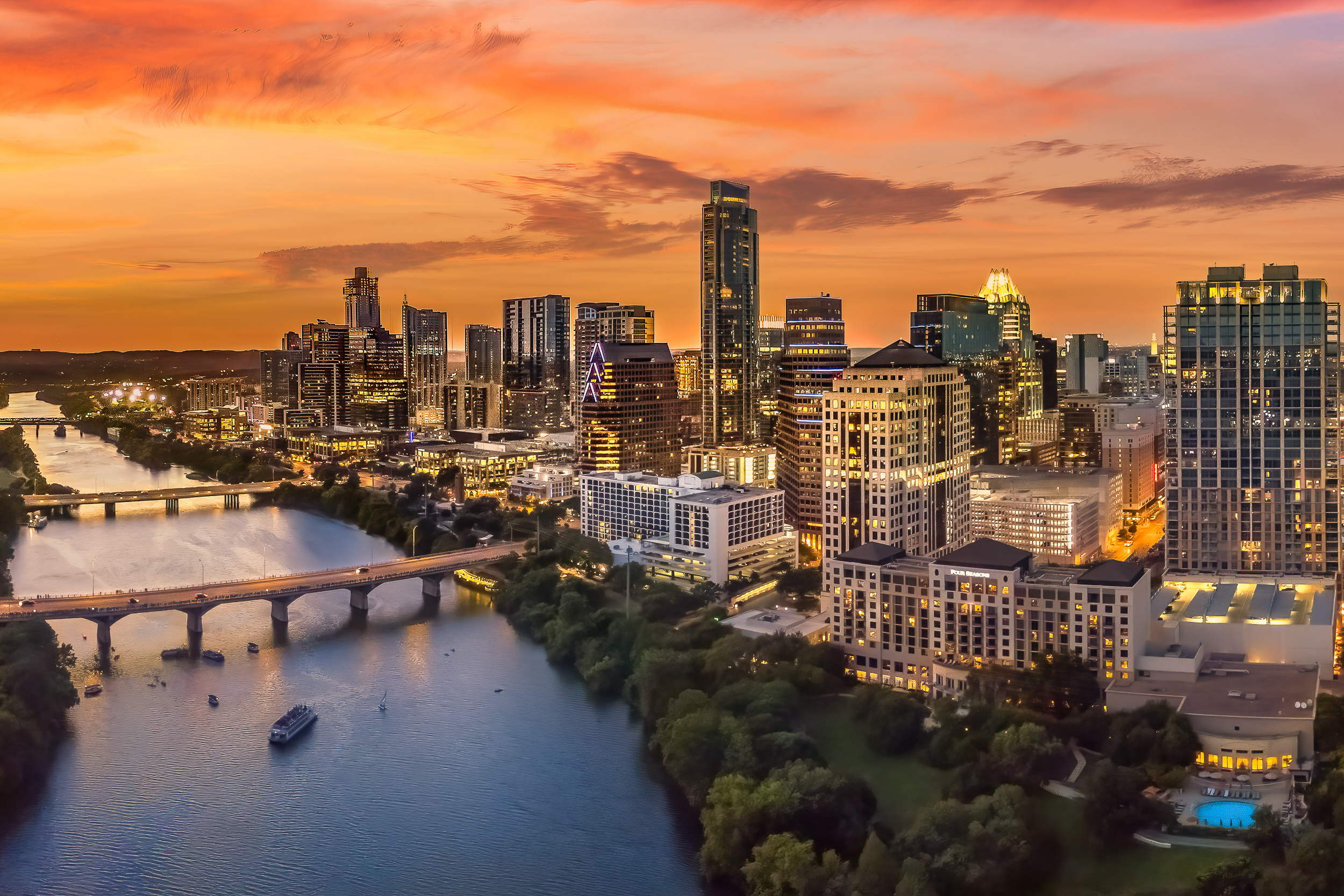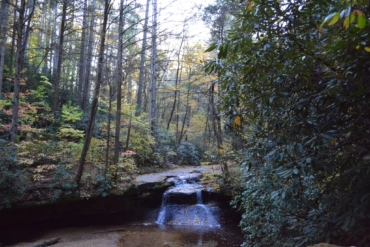Austin, Texas, offers so much more than the eclipse, making for an ideal weekend getaway for travelers who want to experience the rare occurrence (the next total eclipse in the U.S. will be 2044). Visitors can partake in live music, a massive bar and restaurant scene, plenty of outdoor recreation, and outstanding spring weather when much of the nation is still under snow. These are many of the reasons I moved here in 1986.
But this isn’t news; people have been flocking to Austin for quite some time, with the tech industry contributing significantly to the influx of new residents. The rapidly expanding population has strained resources immensely. One stint on any significant roadway during rush hour, and you will feel the city’s seams straining.
The predicted population doubling during the eclipse triggered a disaster declaration by the Travis County judge (the county that Austin sits in). Nearby counties followed suit. What does this mean for those visiting or living in these areas?
The Rarity of Totality
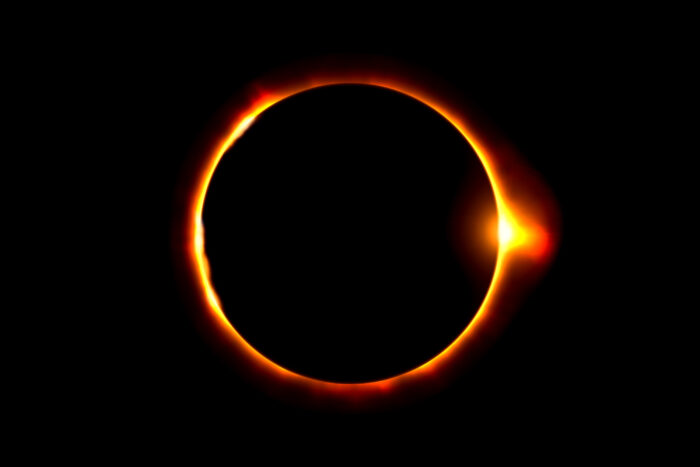
A total eclipse happens when the moon passes between the sun and the earth, completely blocking the face of the sun. For Austin and surrounding area residents, it’s a once-in-a-lifetime event. But as such, in Austin, the time in totality is short.
The total eclipse in Austin proper will occur at 1:36 p.m. CDT and last about 1 minute and 44 seconds. Indeed, it is a short time to enjoy the cosmic event, but again, it’s insanely rare. The partial eclipse in Austin will last from approximately 12:17 p.m. to 2:58 p.m. CDT.
The total eclipse will last much longer for the surrounding Hill County, which lies west and southwest of Austin. The time in totality for these areas is approximately 1:32 to 1:41 p.m. CDT.
The swath of totality in North America runs roughly from Montreal, Canada, to Mazatlan, Mexico, and is relatively narrow. You can see a graphical representation of the path on NASA’s site.
The State of Emergency for the Solar Eclipse in Austin
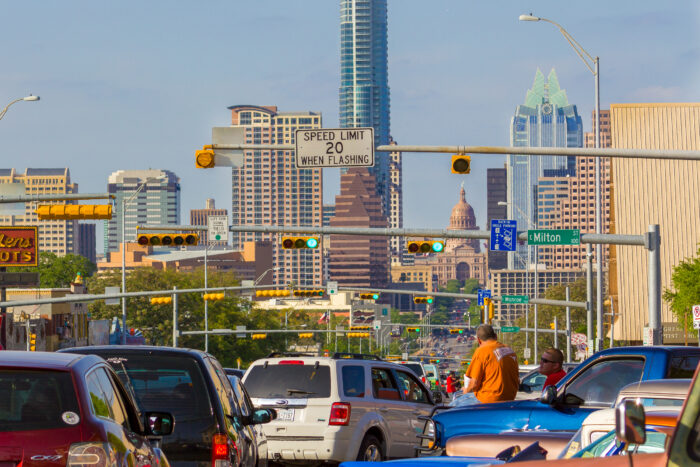
Earlier this month, several Austin area counties declared a state of emergency for April 8. Local government officials estimate a million visitors will descend on Central Texas starting Friday, April 5, and continuing until Tuesday, April 9.
Residents have been receiving warnings of hours of standstill traffic, a lack of groceries and gas, and intermittent cellphone service. School districts have decided to shut down, and repeated warnings persist about first responders and local medical facilities being potentially overrun.
Any inner city parks or public areas will likely be over capacity during eclipse viewing hours and before and afterward for celestial celebrations.
I live in Wimberley, just under an hour southwest of Austin. Our roads are more minor, and there are fewer facilities than in Austin. Local officials even suggested having a “bugout kit” in our vehicles in case we get stuck in standstill traffic and cannot make it home overnight.
I drive in Austin twice a week and cannot imagine the traffic with a sudden doubling in population. I don’t even see where all the extra cars would park. It’s mind-boggling to me after having lived here since the ’80s and witnessing the resources stretched to breaking points with the already astronomical population growth. Doubling it, even temporarily, seems unfathomable to me.
Still Planning to See the Austin Eclipse?
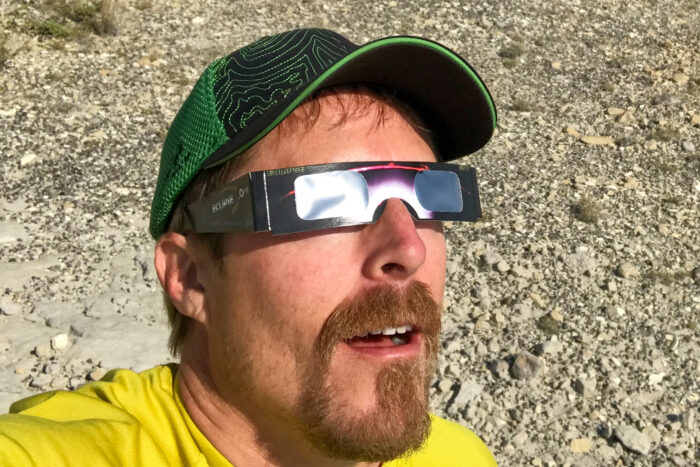
I perused the more well-known travel booking sites for airline tickets for April 5-9. I used several major cities as the originating point and found tickets for each. But at the time of writing, none were less than $1,000 round trip.
A quick perusal of the major hotel booking sites shows a few rooms left at the time of writing, but they are pricey! The smaller surrounding towns, including mine, currently show similar low inventory levels. If you want accommodations and have the money, it’s do-or-die time.
Rental car availability is similar. Some major travel booking sites showed no available cars in Austin from the April 5-9. However, Kayak and Priceline had availability. So did the crowdsourced Turo site, albeit only a few exotic sports cars, which seems appropriate.
There are 31 Texas State Parks in the path of the eclipse totality. Although reserved campsites were likely gone long ago, some parks still had reservable day passes. On April 8, you cannot enter Texas State Parks without a reservation.
Three Travis County Parks will be in the eclipse path, and two still currently have reserved day passes for the 8th.
Finally, as of the time of writing, area Harvest Hosts sites still had camping spots open for the Austin eclipse weekend, but membership is required.
Be Prepared and Patient

The bottom line? Be prepared and extremely patient. Traffic, hordes of people, and lines down the street for restaurants and bars are typical for Austin during one of its many conferences and festivals, like SXSW, but this will draw even more visitors.
Reservations are necessary for most things you may need during your visit, and if you haven’t already booked, the time is now. Choices are not zero, but slim, and undoubtedly shrinking by the day.
And it might seem alarmist, but better to be safe than sorry. Make a plan with travel companions to meet up at a particular time and place in case cellphones stop working for an extended period. Carry water and food in case you get stuck in your car or stranded at your viewing location because of standstill traffic.
Gas up and get groceries early. It most likely won’t reach post-apocalyptic mayhem, but it might be close. A few precautions won’t hurt, and it may help.
And if you do come to Austin, enjoy! I sure have for nearly 4 decades.
